Jacinta Nampijinpa Price
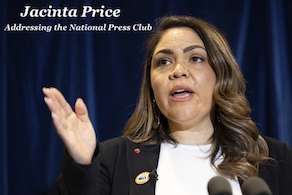
I place myself standing beside Jacinta Price at the National Press Club in Canberra.
She has been making an emotional plea for her Aboriginal women and children living in communities “on country”.
She knows the horrors of the lived experience of many of them.
Her plea is for a “hands on” remedy where the disadvantage exists, as compared to a very “top heavy” and “tried and failed” and very expensive, division by race that is called “The Voice.”
The reporter, (in my opinion ) with a ‘got ya’ sneer asks, “do you think Colonisation has had a detrimental effect on Aboriginal people”?
In the room, in front of Jacinta, sit Aboriginal women who have travelled by air into the city under their own free will.
They sit side by side as equals with people who are representatives of diverse cultures.
They have their iPhones and computers.
They are well groomed and articulate.
They can freely tell their stories, write their stories, and interact in a global humanity with their heads held high. (However, not all.)
She knows her mother and other mothers will go home without the fear of having her teeth bashed out, or their faces smashed.
She knows any grand daughter she may have will not be raped by older men before they reach adolescence.
She knows her grand-sons will not be mutilated in initiation ceremonies.
Colonisation has brought her this reality through Westminister human rights, and laws, and secular education. (But not for all)
Jacinta takes a deep breath; she calculates the kaleidoscope of faces before her as she visualises the possibilities of “before” and “after.”
She draws a breath and ‘eye balls’ the reporter and bravely answers the question, “NO“.
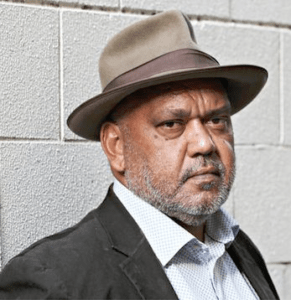 What a “verbal flogging” she has received since then!
What a “verbal flogging” she has received since then!
So, we as an Australian people have to make a decision, and strangely enough, like Jacinta, it is a yes or a no.
The advocates of the “Yes” campaign must surely recognise how different their lives would have been without Colonial influence.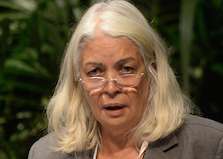
Sport heroes must also acknowledge that without Colonialism they would have no fame on a global stage.
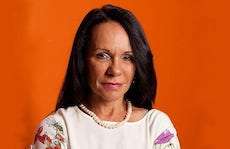 Comparing most Aboriginal lives before Colonialism to the privileged lives most now live, how would they answer the question put to Jacinta?
Comparing most Aboriginal lives before Colonialism to the privileged lives most now live, how would they answer the question put to Jacinta?
Their truthful answer must be, “NO” unless of course, they believe the falsehood that pre-Colonial Australia was a paradise!
I’m with Jacinta with her summation that, “NO ONE VOICE FITS ALL” and the multiple voices that currently exist must, “grow ears to hear, eyes to see and feet to do the work where the need exists.”
The confrontation of the “Yes” message is overwhelming.
I can understand from the elites, because they have agendas for personal power and profit.
I can understand from business because to go against government could be detrimental to their business success.
I can understand from sport personal because to not agree makes them susceptible to the smear of being called racist.
In fact the “yes” campaign makes children and old folk and across the board of Australians feel guilty of being racist if they were to vote NO.
The loud “Yes” campaign makes no room for an opinion of a better way to meet the needs of some of our Aboriginal people.
However, what I cannot understand is the voice of some churches to advocate for the YES voice agenda.
It brings to mind Pontios Pilate washing his hands instead of taking responsibility for Jesus knowing that the people he handed Him over to did not have His best interest in mind.
It surprises me to hear the teachings of Jesus as the reason for the Yes campaign of some churches.
The message of Jesus to the church has always been,”go ye into all the world and preach the gospel.
The Gospel is the good news of a saviour who is Christ the Lord.
The Gospel is an incarnating gospel – to sit among people where the need is.
It is surprising that the church would hand the redemption of people in strife to a secular body who show no inclination towards the Gospel of Jesus Christ.
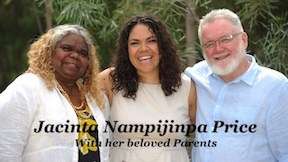 I do trust the Alice Springs church advocating for a voice are on the ground in their Aboriginal community.
I do trust the Alice Springs church advocating for a voice are on the ground in their Aboriginal community.
I do hope they are gathering the children on Sunday for Sunday school.
I do hope their youth are there on Saturday with their music and youth programmes.
I do hope the church is present on Sunday, and I do hope they “sit where the people sit” during the week.
I do hope the big city churches are not washing their hands of responsibility when they say “yes” to a body of people who do not have God in their mind but believe human wisdom has the answers.
Incarnating missions did, largely speaking, provide a safe haven for many Aboriginal communities in the past.
However some communities are being overtaken by the evil of alcohol, drugs, and gambling.
There lies a starting point for the incarnating church!
The “Gospel is the power of God unto Salvation.”
I know a man who came through two world wars, and lived in the post war great national depression in Sydney.
He was in his early 40s.
He was an alcoholic, chain smoker; had lost badly on the horses, and was wracked in back pain with cyciatica.
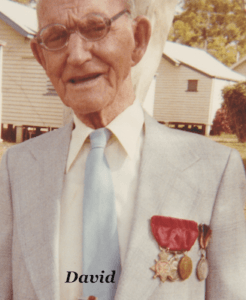 His wife died and he closed the door of his house in 34 Heeley St. Paddington and made his way through Elizabeth Street intent on jumping the Sydney Harbour Bridge to end it all.
His wife died and he closed the door of his house in 34 Heeley St. Paddington and made his way through Elizabeth Street intent on jumping the Sydney Harbour Bridge to end it all.
A lady preached on the street corner and the man made his way to the group and the minister sat with him on the gutter and led him to commit his life to Jesus.
He never drank, smoked or gambled again.
From that day, he was forgiven and healed.
The church must remember there is a God, and His life changing Gospel is real.
I know this story is true because that man was my father!
